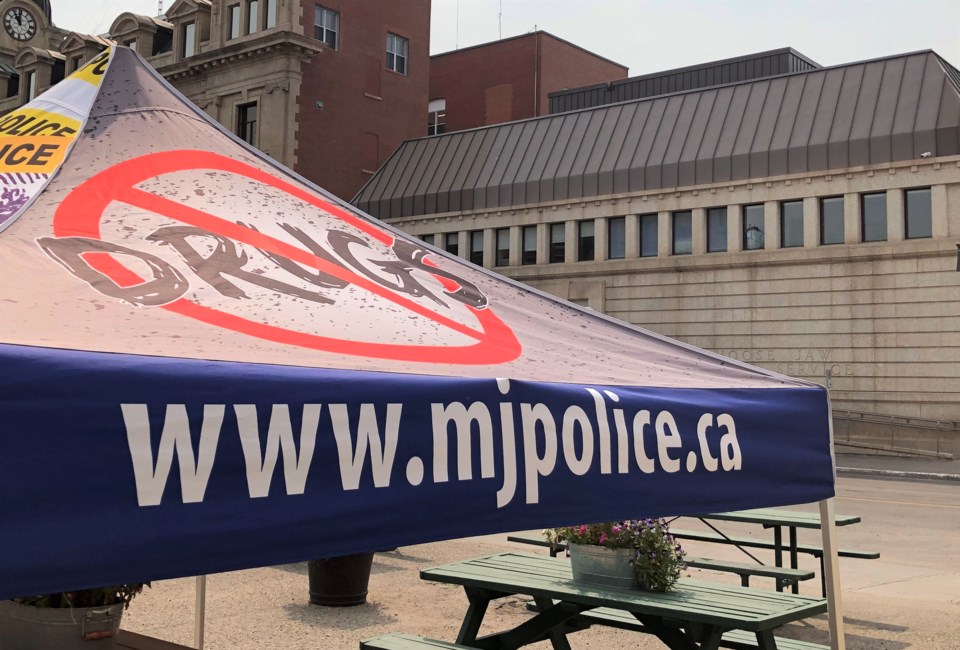Police are experiencing more stress because of increased call volumes of nearly 20 per cent, but the police chief believes that pressure should lessen once the agency is fully staffed in 2023.
The Moose Jaw Police Service (MJPS) responded to 17,630 calls for service from Jan. 1 to Nov. 30, compared to 14,851 calls during the same period last year, the November statistics report shows. This is an increase of 2,779 calls year-over-year or 18.7 per cent.
About 25 per cent of calls are crime-related, while 75 per cent is for other disruptions, Police Chief Rick Bourassa explained during the Board of Police Commissioners’ Dec. 8 meeting.
The organization expects by Dec. 31 to see call volumes about 20 per cent higher over last year, which is already evident in the nearly 3,000 extra calls the agency has received, he continued.
Calls have risen because most people stayed home during the pandemic, so there was less to which officers responded, Bourassa pointed out. Now that people are active again, cops are pursuing more incidents.
“We’re also a little more diligent in making sure those calls are included in our system. There were times when we caught some things not being captured … ,” he said, noting this year could be the highest in a decade.
Commissioner Mary Lee Booth expressed concern about the increase. She noted that it is also layered with some of the most difficult situations police face involving guns, gangs and drugs.
“We need to … make sure that we are resourcing enough to our police service to ensure our officers are feeling safe and healthy and supported,” she said, pointing to the “severe shortage” of health-care workers as an example. “I’m feeling a little bit alarmed that we don’t want to go there in our police service here.”
When asked what the average time was that police spend on a call, Bourassa said it’s difficult to track, while that number wouldn’t provide much detail anyway.
One incident could take 20 minutes, while another — such as a major investigation — could take weeks and months. The number of officers working on the same case or incident would also have to be included.
“It tells us some things about workload and about demand, but there would have to be a different level of analysis, which I’m hoping, when we move to our new recording system and computer system … we will be able to run some of those reports and get some clear answers,” he added.
It’s evident that police have a heavier workload considering there have been nearly 3,000 extra calls this year, said commissioner Darrell Markin. He thought the agency needed an extra officer to handle that.
Members are facing extra pressure with the higher call volume, which is equal to about eight more calls per day, Bourassa replied. Those calls add up over time, as do the related investigations and overall stress.
The chief added that the agency should be fully staffed by December 2023, which should take off pressure from front-line officers.
The other issue is that the data doesn’t reflect officers being proactive — such as leading parades — or pursuing enforcement-driven activities, such as setting up radar or delivering documents, said Supt. Devon Oleniuk. Other daily activities are not logged either.
The public has a misconception about how police operate, he continued.
About 20 to 30 years ago, people thought police were “driving around” if their lights and sirens were not activated. But that approach has changed because of amendments to The Traffic Safety Act, which means cops must be cautious about using those tools.
“Quite often, we are attending to complaints and calls for service,” Oleniuk added, “but we don’t go with lights and sirens in the fashion it used to be decades ago.”
The next Board of Police Commissioners meeting is Thursday, Jan. 12.




